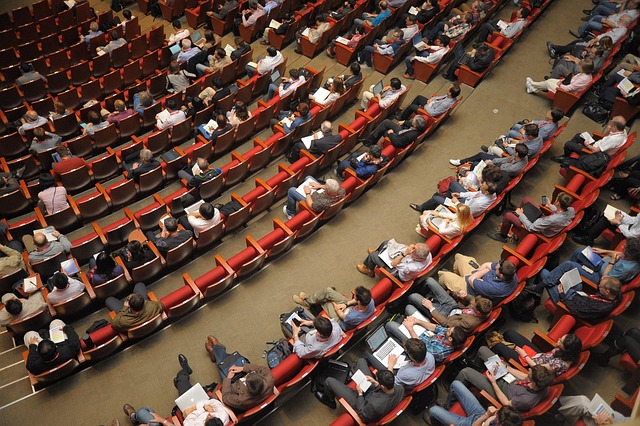Elevate Holiday Parties: Ideas for Local Business Events

Transform local businesses into festive event hubs with creative decor, catering to diverse dietary…….
In today’s competitive business landscape, event planning has emerged as a powerful tool for local enterprises to engage their customers, build brand awareness, and foster community connections. This article delves into the intricate world of event planning specifically tailored for local businesses, exploring its multifaceted aspects, global implications, and future potential. By understanding the art and science behind organizing memorable events, local entrepreneurs can unlock new opportunities for growth, innovation, and customer satisfaction.
Definition: Event planning for local businesses refers to the strategic organization and execution of events designed to promote a company’s products, services, or brand image within its local community. These events can range from small-scale gatherings to large-scale festivals, each aimed at creating meaningful experiences for customers and stakeholders.
Core Components:
Historical Context: The roots of event planning can be traced back to ancient civilizations, where community gatherings and festivals served both cultural and commercial purposes. However, as businesses evolved, so did the concept of event planning. In the 20th century, with the rise of marketing and branding, event planning became a strategic tool for companies to connect with their customers. Today, it has become an integral part of local business strategies, especially in highly competitive markets where differentiation is key.
Significance: For local businesses, well-planned events offer numerous benefits:
Event planning for local businesses has a significant global reach, with trends and influences permeating across regions:
| Region | Trends/Influences | Examples |
|---|---|---|
| North America | – Tech-driven event apps for enhanced attendee experiences – Sustainable events focusing on eco-friendly practices |
The use of QR codes and AR technology at music festivals, promoting paperless ticketing and interactive performances |
| Europe | – Hybrid events combining in-person and virtual participation – Post-pandemic focus on health and safety protocols |
Virtual art exhibitions allowing global access, while implementing strict COVID-19 guidelines for physical events |
| Asia Pacific | – Cultural fusion events celebrating local heritage – Tech innovation in event management software |
South Korea’s K-Pop concerts blending traditional Korean culture with modern music trends, utilizing advanced stage technology |
| Middle East & Africa | – Grand-scale festivals attracting international talent – Rising popularity of pop-up events in unique locations |
The Dubai Shopping Festival featuring global artists and unique desert-themed pop-up restaurants |
These regional variations showcase the adaptability and creativity within the event planning industry. Local businesses worldwide are embracing technology, sustainability, and cultural integration to craft memorable experiences that resonate with their audiences.
Market Dynamics: The event planning sector contributes significantly to global and local economies:
Investment Patterns:
Revenue Generation: Event planning offers various revenue streams:
1. Storytelling through Events: Craft events that tell a story about the brand’s values, history, or products. Engage attendees by creating immersive experiences aligned with your brand narrative.
2. Personalization: Understand your target audience and tailor events to their interests. Personalized experiences leave lasting impressions and encourage customer loyalty.
3. Innovation in Technology: Embrace technology like never-before-seen stage designs, interactive apps, or augmented reality (AR) elements to captivate attendees and create shareable moments.
4. Sustainability Focus: Implement eco-friendly practices such as using biodegradable materials, encouraging carpooling, or adopting digital documentation to appeal to environmentally conscious consumers.
5. Collaboration with Influencers: Partner with local influencers or micro-influencers who can promote the event to their engaged followers, expanding your reach and creating buzz.
6. Community Engagement: Involve local schools, charities, or community groups in event planning and execution. This collaboration fosters a sense of ownership and strengthens community ties.
Challenges:
Solutions:
The future of event planning is bright, driven by technological advancements and evolving consumer preferences:
Event planning for local businesses is a dynamic and rewarding strategy to foster community connections, boost brand visibility, and drive revenue. By understanding the core components, embracing global trends, and navigating challenges with creativity, local entrepreneurs can craft exceptional events that resonate with their audiences. As technology evolves and consumer preferences shift, the future of event planning holds endless possibilities for innovation, engagement, and success.

Transform local businesses into festive event hubs with creative decor, catering to diverse dietary…….

Event planners play a vital role in supporting local economies by organizing gatherings tailored to…….

Event Planning for Local Businesses succeeds by understanding demographics, interests, and cultural…….

Event planning for local businesses is a strategic way to boost employee satisfaction and retention…….

Employee appreciation events are key to creating a positive work environment and retaining talent in…….

Identifying community needs through surveys, focus groups, and partnerships with local leaders is cr…….

Well-organized charity events benefit both communities and local businesses by fostering unity, enha…….

For effective event planning by local businesses, understanding community demographics, interests, a…….

Corporate events, a strategic art for local businesses, foster relationships, boost morale, and enha…….